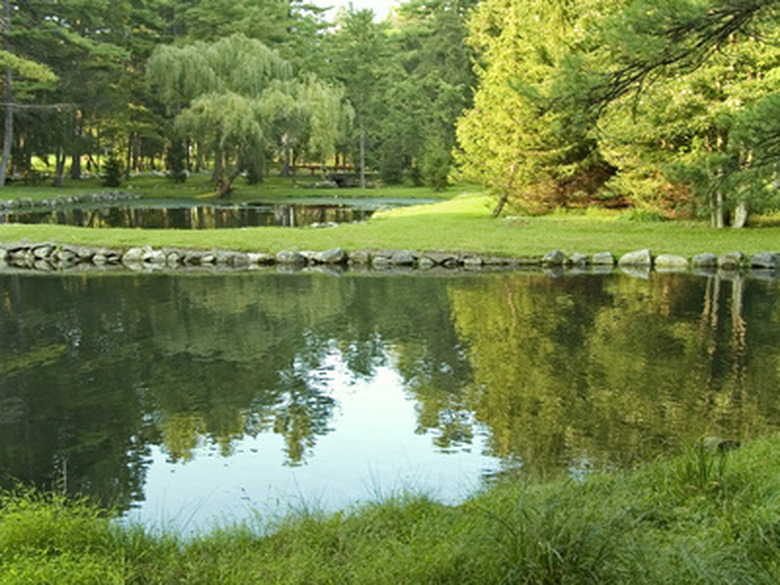How To Get Rid Of Pond Weeds And Grass
Things Needed
- Herbicide approved for use around water
- Vinegar
- Salt
- Spray bottle
Grass and some weeds in a pond can look pretty up to a point, but if they overgrow, they can cover the pond and affect its function. Removing weeds and grass around a pond is not something to take lightly. You cannot use just any herbicide to remove vegetation around water. Things like wildlife and recreation must be taken into consideration so you don't cause any harm. There are a few chemicals on the market that are allowed for use in water.
Step 1
Determine what kind of weeds you are dealing with. There are generally four types: weeds around the edge, emergent weeds in the water, submerged weeds in the water and algae that have no roots.
- Grass and some weeds in a pond can look pretty up to a point, but if they overgrow, they can cover the pond and affect its function.
- Things like wildlife and recreation must be taken into consideration so you don't cause any harm.
Step 2
Apply a natural vegetation killer to grasses and weeds along the land around the water. Salt or vinegar will both kill grass and weeds and are not toxic. Spray the vinegar on the vegetation or sprinkle salt. This is a good method if all you have are weeds around the edge and none in the pond.
Step 3
Pick a safe herbicide for water. There are only a few herbicides listed as safe for ponds and waterways. If your pond supports wildlife such as fish or waterfowl or it is used for recreation like swimming or fishing, you will want to use one of these. The chemical you pick will depend on the weed issues you have. Some do better at certain types, such as submerged weeds, than others. Choose a chelated copper herbicide for algae and weeds without roots. Fluridone is for water plants but doesn't do well on algae. Diquat does well with submerged weed and algae, and glyphosate is best on weeds on the edge of the water and emergent plants.
- Apply a natural vegetation killer to grasses and weeds along the land around the water.
- Diquat does well with submerged weed and algae, and glyphosate is best on weeds on the edge of the water and emergent plants.
Step 4
Add the recommended amount of chemical to a spray container and spray the offending weeds if this is how it is to be administered. Some chemicals are to be poured in the water and the amount depends on the water volume of the pond.
Step 5
Wait the appropriate number of days before resuming activities. Some chemicals will list a waiting period for fishing, swimming, livestock use or other activities. Follow these closely to avoid illness or worse.
